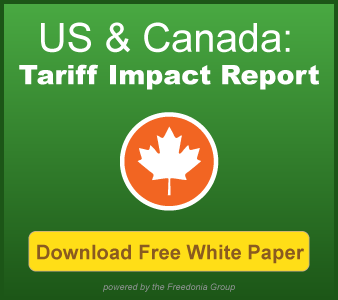Tariff Tracker: Tariffs to Spur Increase of US Production of Solar Panels
by Sarah Schmidt
August 2, 2018
The recent announcement by Heliene – a Canada-based manufacturer of solar panels – that it would begin production operations at a modernized facility in Minnesota is the latest of a string of such announcements of expanding US plant capacity among both foreign and US-based companies. Many leading global suppliers of solar panels – such as First Solar, Hanwha Q Cells, Jinko Solar, and LG – have announced plans to construct manufacturing facilities in the US in 2018. While several other factors have boosted US demand for and output of solar panels – such as California’s requirements that nearly all new homes built in that state have solar panels or the extension of federal tax credits for homeowners installing solar panels on their residences – tariffs on imported solar panels have clearly encouraged firms to increase US production.
Under the Section 201 tariffs imposed by the Trump Administration in January 2018, the US – for the next four years – allows 2.5 gigawatts (gW) of foreign-made solar panels to be imported into the US every year. Imports of solar panels in excess of 2.5 gW are subject to a tariff – beginning at 30% for the first year and gradually sliding back to 15% in the fourth year. As US imports of solar panels totaled more than 10 million gW in 2017, many manufacturers are faced with the prospect of 30% price increases for their products. Several of these firms decided that one way to deal with this issue was to add or expand production capacity in the US.
The imposition of these tariffs has attracted both praise and criticism. Supporters of the move – such as US-based manufacturers of solar panels – claim that foreign suppliers are undercutting US firms to drive them out of business; thus, tariffs are the only way to level the playing field. Furthermore, good-paying high-technology jobs are created as plants open across the US. Detractors of the tariff policy point out that many of these domestically produced solar panels will cost more than imported products. Many consumers – when faced with higher prices – will balk at the expense, thus costing US solar panel installers work and continuing the nation’s dependence on fossil fuels for its energy needs.
Debate over the effects of these tariffs is expected to continue – as are the efforts of other firms to avoid these tariffs by opening or expanding solar panel production facilities in the US. To learn more about dueling tariffs and the industries they'll impact the most, download the Freedonia Group's new white paper for the latest insights from experts. For information on the expanding market for solar roofing in the roofing in the US, check out The Freedonia Group’s Solar Roofing in the US study.
To Learn More
Want to learn more about dueling tariffs and the industries they'll impact the most? Download the Freedonia Group's new white paper for the latest insights from experts.
About the Author:
Have unique research needs?
Freedonia Custom Research listens intently to your needs and objectives. Then we work diligently to define and deliver a service to meet them.Subscribe to Our Blog
Stay up to date with the latest information about new market research and news in areas relevant to your business from our analysts and team members.Freedonia Group Blog Subscription
Provide the following details to subscribe.
